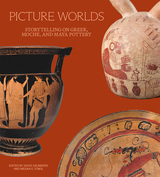10 books about Political & Protest
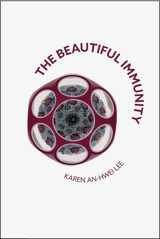
The Beautiful Immunity
Karen An-hwei Lee
Tupelo Press, 2024
A collection of poems that blesses the reader with a spirit of hope, solace, and inspiration in their own seasons of adversity.
The Beautiful Immunity asks how we create good in an imperfect world of fallible souls. Spare and formally daring, these poems were refined through the catastrophes of wildfires, recession, and a major public health crisis through the hope of a beautiful immunity—an everlasting salve for the lost. This slender volume reads as the culmination of more than a decade’s worth of labor, documenting large-scale social, cultural, and political upheavals, as well as the moment when the word “anthropause” floated indelibly into the world’s vocabulary.
The Beautiful Immunity asks how we create good in an imperfect world of fallible souls. Spare and formally daring, these poems were refined through the catastrophes of wildfires, recession, and a major public health crisis through the hope of a beautiful immunity—an everlasting salve for the lost. This slender volume reads as the culmination of more than a decade’s worth of labor, documenting large-scale social, cultural, and political upheavals, as well as the moment when the word “anthropause” floated indelibly into the world’s vocabulary.
[more]

Boat
Poems
Christopher Merrill
Tupelo Press, 2013
Like Neruda and Paz, Perse and Milosz, Christopher Merrill is both a writer and a cultural envoy, crisscrossing the globe as chronicler and courier. Boat records a series of passages over a decade, employing varied formal strategies: meditations and fantasias, prose poems and versets, lyric sequences and narratives, translations and ghazals. Composed in war zones and embassies, refugee camps and monasteries, Boat is a logbook tracking questions of memory, the body and body politic, faith, mortality, and the ways of knowledge moves through generations. Reflecting ten years of life on the wing and forty years of writing, including extensive translation from other languages, Boat bears witness to what Merrill has heard and seen in places most Americans will never visit.
[more]

Children in Tactical Gear
Peter Mishler
University of Iowa Press, 2024
Children in Tactical Gear offers a brilliant feed of stark incantations and unsparing satire. Set in distinctly American landscapes, including toy weapon assembly lines and the compounds of the super rich, and voiced by imperiled children, failed adults, and even a smart home speaker, this collection demonstrates the unsettling force of a surreal imagination under duress.
[more]
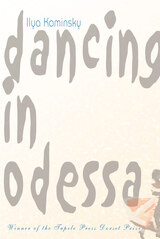
Dancing in Odessa
Ilya Kaminsky
Tupelo Press, 2004
Poetry. Winner of the 2002 Dorset Prize, and recipient of the Ruth Lilly Fellowship, Ilya Kaminsky is a recent Russian immigrant and rising poetic star. Despite the fact that he is a non-native speaker, Kaminksy's sense of rhythm and lyic surpasses that of most contemporary poets in the English language. This magical, musical book of poems draws readers into its unforgettable heart, and Carolyn Forché wrties simply "I'm in awe of his gifts."
[more]

Gagaan X'usyee/Below the Foot of the Sun
Poems
X'unei Lance Twitchell
University of Alaska Press, 2023
Identity and understanding are fluid and plural, yet the histories of violence and oppression influence and shape everything in the world because the past, present, and future exist in the same plane and at the same time. Gagaan Xʼusyee / Beneath the Foot of the Sun is a unique collection of Indigenous cultural work and Lingít literature in the tradition of Nora Marks Dauenhauer and in the broader contemporary company of Joy Harjo and Sherwin Bitsui. Focused on the history of place and the Lingít and Haida people, who recognize little separation between life and art, these forty-six poems reach into the knowledge of the past, incorporate visions currently received, and draw a path for future generations.
The collection is divided into four sections based on how the Lingít talk about g̱agaan—the sun. Featuring some poems in English, some in Lingít, and some that combine the beauty of the two, Gagaan Xʼusyee / Beneath the Foot of the Sun displays an equal dignity in both languages that transcends monolingual constrictions.
The collection is divided into four sections based on how the Lingít talk about g̱agaan—the sun. Featuring some poems in English, some in Lingít, and some that combine the beauty of the two, Gagaan Xʼusyee / Beneath the Foot of the Sun displays an equal dignity in both languages that transcends monolingual constrictions.
[more]
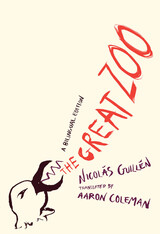
The Great Zoo
A Bilingual Edition
Nicolás Guillén
University of Chicago Press, 2024
A fantastical collection of poems by revolutionary Afro-Cuban poet Nicolás Guillén presented in a Spanish-English bilingual edition.
Born in Cuba to parents of African and European ancestry, Nicolás Guillén worked in printing presses and studied law before moving into Havana’s literary scene. A virtuosic maker and breaker of forms, Guillén rose to fame by transforming a popular form of Cuban music into poetry that called attention to the experience of Afro-Cuban people, and he continued to interweave his artistic and political commitments as he traveled the world.
Originally published in Spanish in 1967, The Great Zoo is a humorous and biting collection of poems that presents a fantastical bestiary of ideas, social concerns, landscapes, phenomena, and more. The “animals” on view in this menagerie include the Mississippi and Amazon Rivers, clouds from different countries, a singing guitar, a temperamental atomic bomb, blue-pelted police, a hurricane, the KKK, and the North Star, among many others. Translated by Aaron Coleman with a keen understanding of the contexts of colonial racialization, oppression, and exoticism, this bilingual edition stands as a testament to Guillén’s carnivalesque vision.
Born in Cuba to parents of African and European ancestry, Nicolás Guillén worked in printing presses and studied law before moving into Havana’s literary scene. A virtuosic maker and breaker of forms, Guillén rose to fame by transforming a popular form of Cuban music into poetry that called attention to the experience of Afro-Cuban people, and he continued to interweave his artistic and political commitments as he traveled the world.
Originally published in Spanish in 1967, The Great Zoo is a humorous and biting collection of poems that presents a fantastical bestiary of ideas, social concerns, landscapes, phenomena, and more. The “animals” on view in this menagerie include the Mississippi and Amazon Rivers, clouds from different countries, a singing guitar, a temperamental atomic bomb, blue-pelted police, a hurricane, the KKK, and the North Star, among many others. Translated by Aaron Coleman with a keen understanding of the contexts of colonial racialization, oppression, and exoticism, this bilingual edition stands as a testament to Guillén’s carnivalesque vision.
[more]
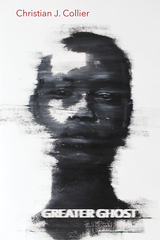
Greater Ghost
Christian J. Collier
Four Way Books, 2024
In Christian Collier’s debut poetry collection, Greater Ghost, this extraordinary Black Southern poet precisely stitches the sutures of grief and gratitude together over our wounds. These pages move between elegies for private hauntings and public ones, the visceral bereavement of a miscarriage alongside the murder of a family member, and the specter of police brutality. With a profound awareness of literary tradition, Collier enters into the American canon and dialogues with Black Southern noir—a poem like “Beloved,” whose title expresses not only a genuine tenderness in its term of endearment but invokes Morrison, contextualizes this book within the legacy of racial injustice in the U.S., presenting again the prolific losses and disproportionate Black mortality across time, and yet remembers the resilience of love and transformative possibility of self-actualization from inside tragedy.
[more]

Hatch
Poems
Jenny Irish
Northwestern University Press, 2024
Groundbreaking feminist poems featuring an artificial womb and an apocalyptic future
The prose poems in Jenny Irish’s newest collection, Hatch, trace the consciousness of an artificial womb that must confront the role she has played in the continuation of the dying of the human species. This apocalyptic vision engages with the most pressing concerns of this contemporary sociopolitical moment: reproductive rights, climate crises, and mass extinction; gender and racial bias in healthcare and technology; disinformation, conspiracy theories, and pseudoscience; and the possibilities and dangers of artificial intelligence. More intimately, Hatch considers questions about how motherhood and its cultural expectations shape female identity. Working with avant strategies, Irish crafts a speculative feminist narrative, excavating and reexamining the aspects of the American experience that should have served as a call to action but have not. Part elegy and part prophecy, Hatch warns of a possible future while speaking to the present moment.
The prose poems in Jenny Irish’s newest collection, Hatch, trace the consciousness of an artificial womb that must confront the role she has played in the continuation of the dying of the human species. This apocalyptic vision engages with the most pressing concerns of this contemporary sociopolitical moment: reproductive rights, climate crises, and mass extinction; gender and racial bias in healthcare and technology; disinformation, conspiracy theories, and pseudoscience; and the possibilities and dangers of artificial intelligence. More intimately, Hatch considers questions about how motherhood and its cultural expectations shape female identity. Working with avant strategies, Irish crafts a speculative feminist narrative, excavating and reexamining the aspects of the American experience that should have served as a call to action but have not. Part elegy and part prophecy, Hatch warns of a possible future while speaking to the present moment.
[more]

Murmur
Cameron Barnett
Autumn House Press, 2024
A poetry collection that explores the complexity of race and the body for a Black man in contemporary America.
The second book by NAACP Image Award finalist Cameron Barnett, Murmur considers the question of how we become who we are. The answers Barnett offers in these poems are neither safe nor easy, as he traces a Black man’s lineage through time and space in contemporary America, navigating personal experiences, political hypocrisies, pop culture, social history, astronomy, and language. Barnett synthesizes unexpected connections and contradictions, exploring the Tulsa Race Massacre of 1921 and the death of Terence Crutcher in 2016 and searching both the stars of Andromeda and a plantation in South Carolina. A diagnosis from the poet’s infancy haunts the poet as he wonders, “like too many Black men,” if “a heart is not enough to keep me alive.”
The second book by NAACP Image Award finalist Cameron Barnett, Murmur considers the question of how we become who we are. The answers Barnett offers in these poems are neither safe nor easy, as he traces a Black man’s lineage through time and space in contemporary America, navigating personal experiences, political hypocrisies, pop culture, social history, astronomy, and language. Barnett synthesizes unexpected connections and contradictions, exploring the Tulsa Race Massacre of 1921 and the death of Terence Crutcher in 2016 and searching both the stars of Andromeda and a plantation in South Carolina. A diagnosis from the poet’s infancy haunts the poet as he wonders, “like too many Black men,” if “a heart is not enough to keep me alive.”
[more]

Ordinary Misfortunes
Emily Yoon
Tupelo Press, 2017
Korea continues to grapple with the shared memory of its Japanese and US occupations. The poems in Ordinary Misfortunes incorporate actual testimony about cruelty against vulnerable bodies—including the wianbu, euphemistically known as “comfort women”—as the poet seeks to find places where brutality is overcome through true human connections. Emily Jungmin Yoon asks Why do we write poems amid such violence? What can I, and what can poetry, do? Her response to those tough questions is a sequence of reverberating poems that blend documentary precision with impassioned witness, bringing to bear both scholarship and artistry.
[more]
READERS
Browse our collection.
PUBLISHERS
See BiblioVault's publisher services.
STUDENT SERVICES
Files for college accessibility offices.
UChicago Accessibility Resources
home | accessibility | search | about | contact us
BiblioVault ® 2001 - 2024
The University of Chicago Press





